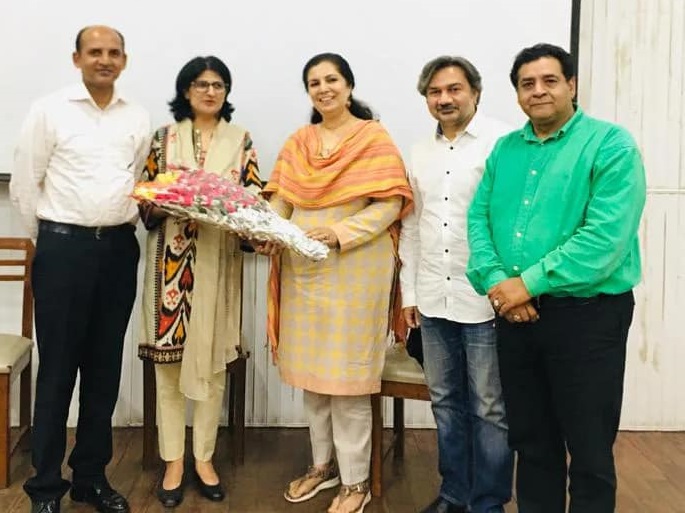Lahore, Pakistan: “The study of semiotic can be very useful for the students of visual arts, theatre, mass communication, journalism, and television production”.
This was observed during a Special Lecture arranged by the College of Art & Design, Punjab University. The lecture was delivered by Shazia Anwer Cheema, from Charles University Prague. The lecture was moderated by Dr. Naela Aamir of College of Art & Design, Punjab University.
She was of the view that semiotics is the study of signs and anything can be a sign as long as someone, or more importantly a group of people interprets it as signifying something other than itself.
She stated that semiotics explains the relation between parts and whole and its purpose is to make the hidden structure, underlying cultural codes, and dominating meanings visible and intelligible. The lecture was focused on visual semiotics and it was specifically geared for the students and practitioners of Visual Arts.
 She was of the view that the Higher Education Commission (HEC) should review old-aged curriculum for bachelor and master students of visual arts, theatre studies, mass communication, journalism, and languages because semiotic and cognitive studies have altogether changed the sciences of viewers and viewed and new dimensions of perception and perceptual process have emerged at the end of 20th century backed by neurology and medical science.
She was of the view that the Higher Education Commission (HEC) should review old-aged curriculum for bachelor and master students of visual arts, theatre studies, mass communication, journalism, and languages because semiotic and cognitive studies have altogether changed the sciences of viewers and viewed and new dimensions of perception and perceptual process have emerged at the end of 20th century backed by neurology and medical science.
 She was of the opinion that semiotic study would expand the vision of practitioners of visual arts, particularly for painters, designers, and visual artists. The lecture was well attended by students as well as faculty.
She was of the opinion that semiotic study would expand the vision of practitioners of visual arts, particularly for painters, designers, and visual artists. The lecture was well attended by students as well as faculty.
It may be mentioned that this was first lecture of its kind in Punjab University that linked students and practitioners with emerging trends and sciences directly linked with visual arts and credit goes to Dr Naela Aamir of College of Art & Design, Punjab University who arranged this special lecture for her students and members of faculty. It is pertinent to mentioned that Semiotic and Cognitive studies are yet not being taught though these subjects are integral part of expressive sciences including visual arts, mass communication, journalism and television production.

